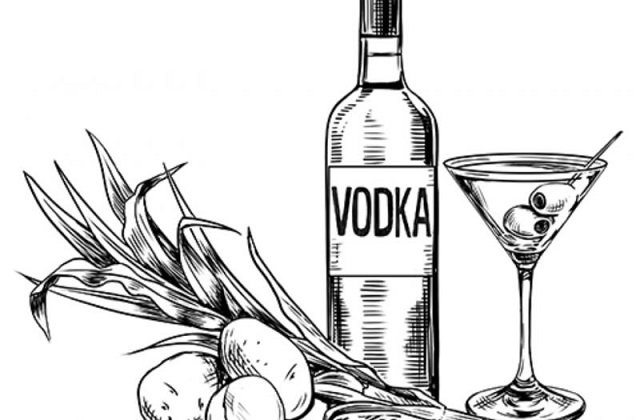
The History of Vodka
Vodka, often referred to as “the water of life,” is a spirit with a rich and intriguing history that spans centuries and continents. While its precise origins are subject to debate, vodka has become one of the most popular and versatile spirits in the world today. Let’s delve into the captivating history of vodka and explore how it has evolved over time.
The exact origins of vodka are shrouded in mystery, with several countries laying claim to its invention. Russia and Poland are often cited as the birthplaces of vodka, with historical records dating back to the 8th and 9th centuries mentioning early forms of the spirit. In Russia, vodka was initially used for medicinal purposes and as a component of herbal remedies before evolving into a popular beverage.
One of the earliest recorded mentions of vodka in Russia dates back to the 9th century, in the form of a beverage called “gorzalka,” which translates to “burning water.” This early version of vodka was typically distilled from fermented grains such as rye and barley.
In Poland, vodka production can be traced back to the Middle Ages, where it was known as “gorzalka” or “woda,” meaning water. Polish vodka was traditionally made from grains such as rye or wheat and was an integral part of Polish culture and tradition.
Over the centuries, vodka production techniques continued to evolve, with improvements in distillation methods and the use of various base ingredients. By the 14th century, vodka had become a popular and widely consumed spirit in both Russia and Poland, with distillation techniques spreading to other regions of Eastern Europe.
In the 16th and 17th centuries, vodka production experienced significant growth and innovation, particularly in Russia. Tsar Ivan the Terrible is credited with establishing the first official state-run vodka production facility in Moscow in the late 16th century, marking the beginning of organized vodka production in Russia.
By the 18th century, vodka had become an integral part of Russian culture and society, with distilleries proliferating across the country. Vodka production was further refined, with a focus on quality and purity. Russian vodka became synonymous with excellence, and it was during this time that iconic brands such as Smirnoff and Stolichnaya emerged.
In the 20th century, vodka experienced a global surge in popularity, propelled by marketing efforts and the development of new vodka cocktails and mixed drinks. Vodka became the base spirit for classic cocktails such as the Moscow Mule, Bloody Mary, and Vodka Martini, further solidifying its status as a staple in bars and households worldwide.
Today, vodka is produced and enjoyed in countries around the world, with a diverse range of brands and styles available to consumers. From traditional Russian and Polish vodkas to innovative flavored varieties, vodka continues to captivate drinkers with its versatility and enduring appeal.
In conclusion, the history of vodka is a fascinating journey that spans centuries and cultures. From its origins in Eastern Europe to its global prominence today, vodka has remained a beloved spirit cherished for its purity, versatility, and timeless appeal. Whether sipped neat, mixed into cocktails, or enjoyed in traditional rituals, vodka continues to hold a special place in the hearts of drinkers everywhere.
Bottlesoutlet is a premier supplier in China’s glassware industry, offering a wide range of glass products and services including customization, decorating, and deep-processing. Our mission is to provide high-quality glass liquor bottles and convenient service while meeting customers’ specific requirements. We are dedicated to fostering continuous growth for businesses through our professional solutions and unwavering commitment to excellence.



